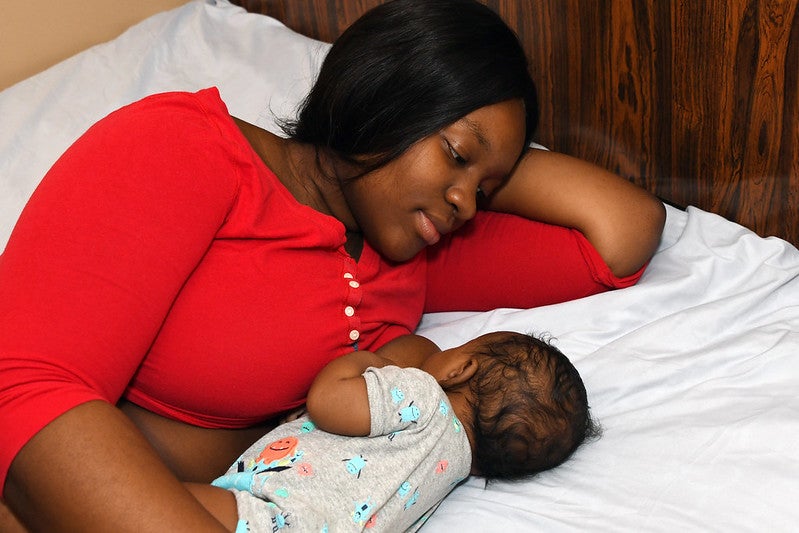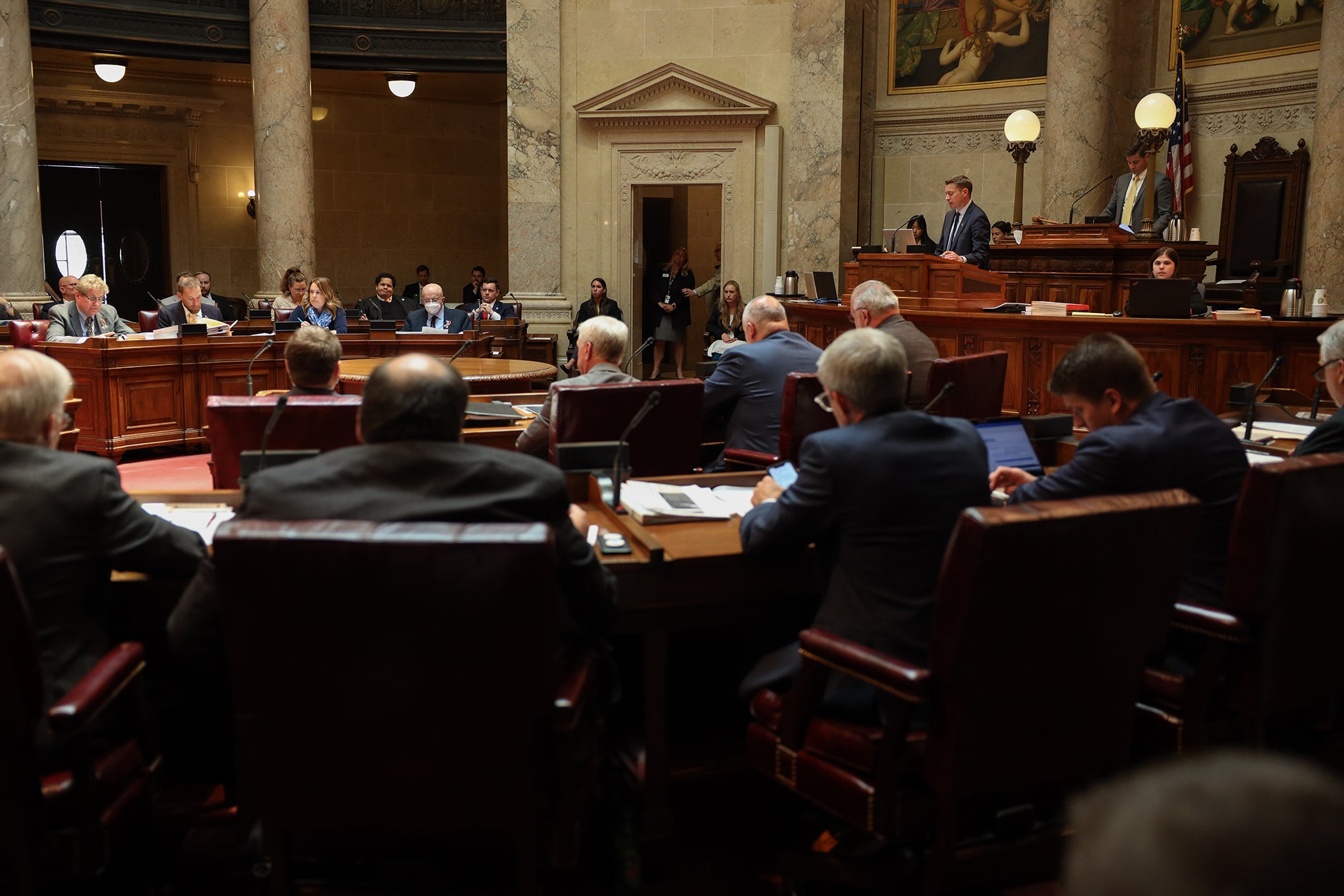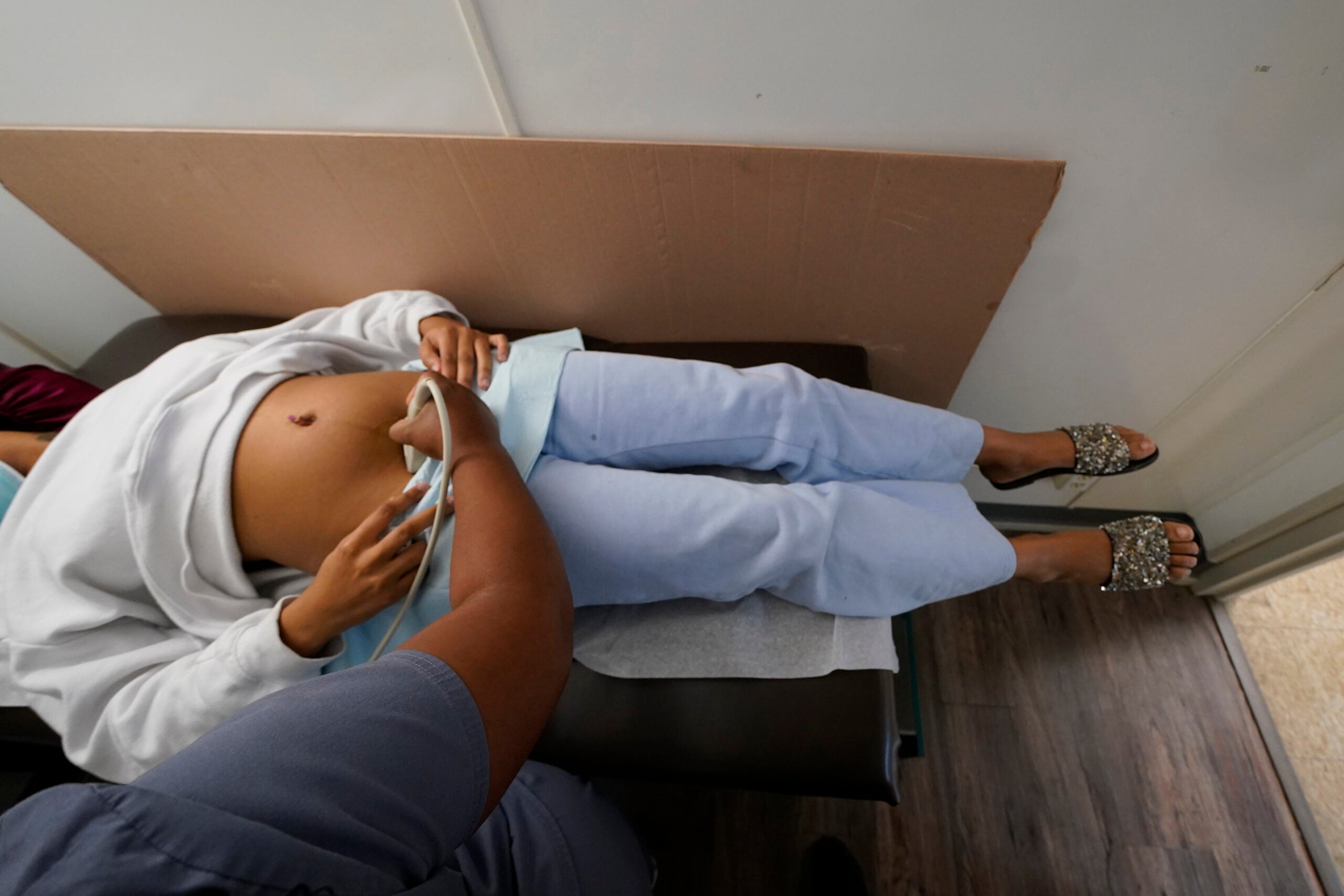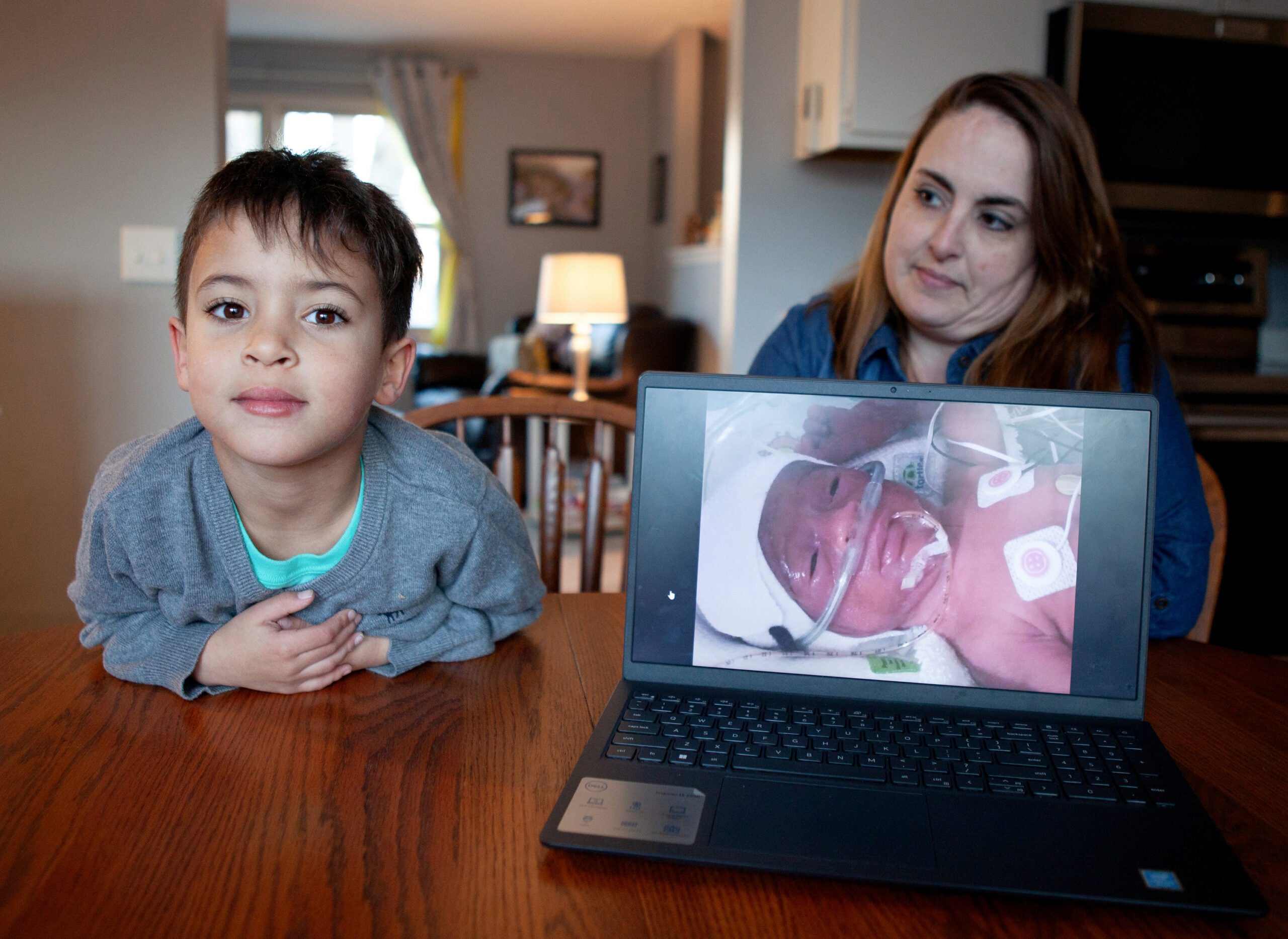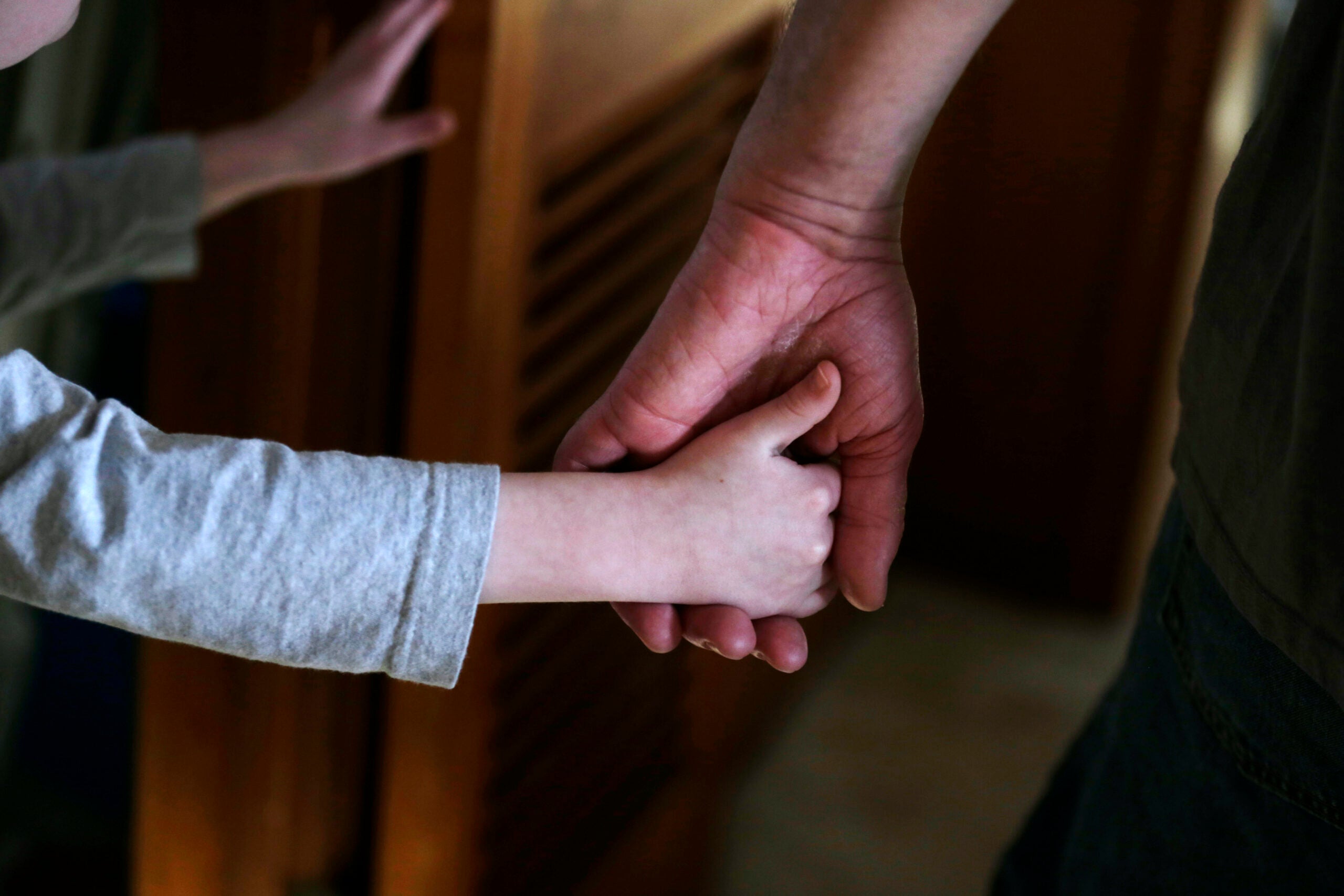A bipartisan bill before the state Legislature would extend Wisconsin’s postpartum Medicaid coverage to a full year after giving birth.
Under current law, pregnant people in Wisconsin qualify for Medicaid or BadgerCare if they earn up to three times the federal poverty level — $52,260 for a family of two (including the unborn child) or $65,880 for a family of three. But that coverage only lasts for 60 days after birth.
After the coverage period ends, the qualifying income level drops back down to below the federal poverty limit — $17,420 for a family of two or $21,960 for a family of three.
News with a little more humanity
WPR’s “Wisconsin Today” newsletter keeps you connected to the state you love without feeling overwhelmed. No paywall. No agenda. No corporate filter.
“Since situations don’t always arise within those first 60 days, extending the access to postpartum care can allow new mothers to benefit from instruction about management of chronic health conditions, behavioral health conditions, in addition to recovery from childbirth and pregnancy complications,” said state Sen. Joan Ballweg, R-Markesan, a lead sponsor of the bill.
The United States has the highest maternal mortality rate of any developed nation. Each year, about 700 people die as a result of pregnancy or delivery complications. Non-Hispanic Black women are about three times more likely to die than white women. And in Wisconsin the disparity is even greater — Non-Hispanic Black mothers die at five times the rate of white mothers.
“We have a problem with equity in our state. And we need interventions that are going to help reduce this gap,” said Dr. Amy Domeyer-Klenske, vice chair of the Wisconsin section for the American College of Obstetricians and Gynecologists. “I want all of my patients to have that same opportunity to improve their health and lives in the postpartum period so they can raise healthy children.”
Gov. Tony Evers pushed for a full year of coverage in his 2021-2023 budget proposal. The Republican-controlled Legislature agreed to add 30 days, extending the total coverage to three months. But the state still needs to get those extra 30 days approved through a federal waiver — a labyrinthine process that advocates said can take years.
The American Rescue Plan Act of 2021 gave states a simpler path to extend coverage. Starting in April 2022, states have a five-year window in which to extend their postpartum Medicaid coverage to a full year without having to go through the formal waiver process. But it has to be a full year — Wisconsin’s extra 30 days won’t cut it.
And Domeyer-Klenske said 30 days is just an arbitrary time period. The child is already covered for at least a year after birth, so advocates say it only makes sense that the mother would be as well.
“To have a healthy baby, it requires a healthy parent,” said Domeyer-Klenske.
Postpartum coverage gives people time to heal after delivery and manage pregnancy-related conditions like diabetes and heart conditions. But it can also cover counseling for things like breastfeeding and planning for future pregnancies.
Domeyer-Klenske said it’s common for people to struggle with mood disorders after giving birth. She said these conditions don’t go away after only 60 days.
“But then we take that treatment away. So now we have a person who is struggling with depression and anxiety, and we’re expecting them to care for a new infant? Not all of these individuals have support at home. So, what does happen to that baby when you don’t have a parent who is healthy to really care for them?” said Domeyer-Klenske.
And even for the healthiest of people, changing insurance is never a pleasant experience, said state Rep. Amy Loudebeck, R-Clinton, a lead sponsor for the bill.
“Can you imagine being a single mom at 60 days and having to change providers, fill out a bunch of forms? I just can’t even imagine making that a priority,” said Loudenbeck. “You don’t have to be a mom to think that this is good policy.”
The bill does have a tremendous amount of support on both sides of the aisle. Of the 13 Senate sponsors and coauthors, six are Republicans and seven are Democrats. And in the Assembly, the 32 supporters are split evenly between the two parties.
At a public hearing for the Senate bill in October, 32 organizations registered in favor of the bill, with only one registering in opposition.
And there’s momentum at the federal level as well. The current version of the Build Back Better bill would extend postpartum Medicaid coverage to a full year for all states. The passage of the bill isn’t a done deal.
Both Loudenbeck and Ballweg said they would rather this was something Wisconsin chose for itself.
“I would prefer that Wisconsin would take that step and be proactive in doing this and not wait for anything that’s happening on the federal level,” said Ballweg.
Loudenbeck said the Assembly version of the bill will likely have a public hearing early next year. Ballweg expects a committee executive vote on the Senate version by January.
Both are hopeful that the legislation will pass.
“There’s just so much good that can come with a healthy mom being able to take care of their newborn in their first year of life,” said Ballweg.
Wisconsin Public Radio, © Copyright 2026, Board of Regents of the University of Wisconsin System and Wisconsin Educational Communications Board.
